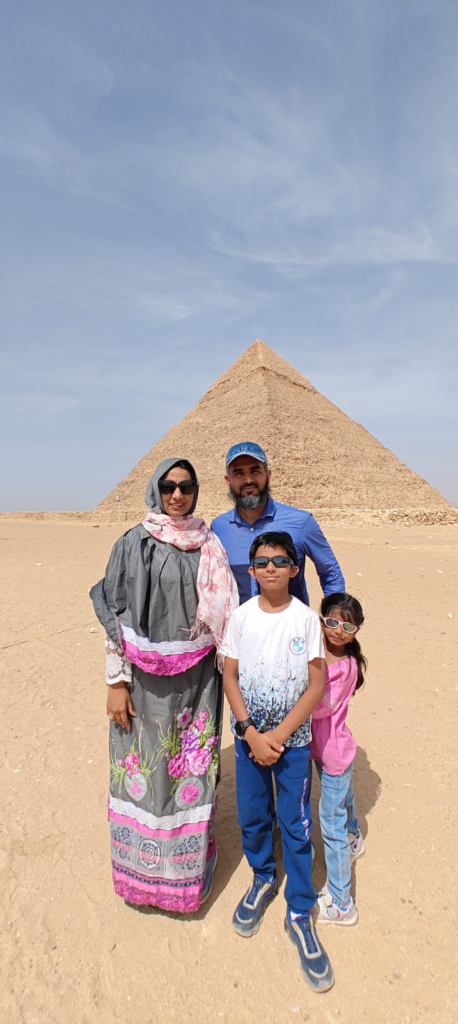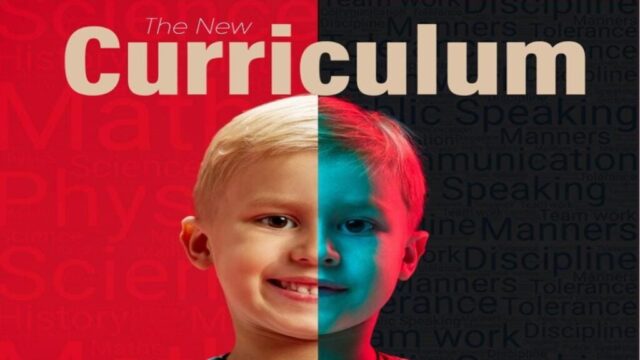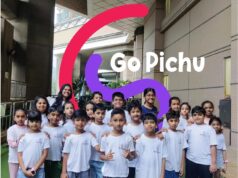Prioritizing Social Skills and Academics Equally in Child Development
“Focus on academics and your life is set.” This age-old adage has been echoed through generations, shaping our approach to education and success. However, in today’s increasingly competitive landscape—one that thrives on dynamic communication, confidence-driven interactions, and collaboration—this belief may be losing its relevance. Are we prioritizing the right skills for our children’s futures?
It’s a familiar scenario: university students with perfect GPAs and stellar test scores often find themselves overlooked by prestigious investment banks. In contrast, those who can articulate their thoughts, demonstrate enthusiasm, and engage effectively in conversations frequently rise to the top. Corporations seek candidates who not only possess technical knowledge but also exhibit strong interpersonal skills, knowing that these attributes can be nurtured through training. This trend extends to university admissions, where a well-rounded profile—combining academic achievements with volunteer work and involvement in communication-rich activities like drama, public speaking, or debating—often trumps a resume filled solely with academic accolades.
Even in traditionally academic fields such as software engineering or finance, the demand for effective communication is paramount. A brilliant coder or a savvy trader must also be able to pitch their ideas clearly and collaborate with team members to bring concepts to fruition. Moreover, we are witnessing an unsettling reality: bright students occasionally engage in questionable behaviors, challenging the long-held belief that academic excellence equates to moral integrity. This contradiction raises an important question: what should we prioritize to foster the character and personality development of the next generation?
As parents and guardians, it is essential for us to engage in this critical dialogue, exploring the new facets of what it means to be “successful” in our evolving world. This article aims to delve into these discussions—examining the prevailing beliefs, identifying shifts in societal expectations, and highlighting resources that can help us equip our children with essential skills for future success. To enrich this exploration, we have gathered insights from five families across Hong Kong, sharing their experiences and strategies for balancing academic and social development. Their stories offer valuable perspectives and actionable advice, shedding light on how we can nurture both academic excellence and essential life skills in our children.
So, join us as we navigate this important journey together. Discover tips and resources that can help foster meaningful skills and ensure a well-rounded development for your child. As you read on, you’ll learn how you can empower the next generation to thrive in a world where communication is just as crucial as knowledge.
In order to delve deeper into this conversation, it’s important to ruminate over the opinions prevalent in our very own society. ADesiFlava turned to five families in Hong Kong to share their perspectives on the delicate balance between academics and social skills. Each parent brings unique insights shaped by their experiences and aspirations for their children.
What do they believe truly matters in preparing kids for the future? How do they navigate the pressures of academic excellence while fostering essential life skills? Their stories not only highlight the challenges they face but also offer practical strategies for cultivating well-rounded individuals.
Onto the next section, we keenly explore their thoughts, as these parents reveal what they prioritize in their children’s upbringing and how they envision success in a rapidly changing world. Their voices are a testament to the evolving definition of achievement—one that transcends grades and embraces character, communication, and connection.
Meet Latha: A Passionate Advocate for Balanced Development

We had the pleasure of speaking with Latha Chandrakant, an early childhood consultant and co-author of several children’s books focused on social learning. Latha is a Lohas Park mum of 2 kids aged 13 and 8. She is also the founder of PlayKlub in Hong Kong and Minmini Early Learning Solutions in India, through which shares her decade long experience with children in early years as a consultant, parent coach, and co-author of curriculum-based picture books that support holistic child development both in India and Hong Kong. Her insights provide a valuable and credible perspective on the importance of a well-rounded approach to development.
Q1) When envisioning your child’s future success, how much emphasis do you place on their ability to communicate effectively, collaborate with others, and navigate social situations, compared to their academic test scores and grades?
“When envisioning my child’s future, I picture them thriving in a way that goes beyond grades or job titles. Of course, academic knowledge and achievements are valuable; however, success is about growing, learning from both wins and setbacks, and finding ways to contribute to their community. Real achievements come from a balanced approach—striving for their own goals while understanding how their actions influence and benefit others. This growth mindset is what I hope they’ll carry into adulthood.”
Q2) What challenges have you faced in balancing your child’s academic performance and the development of their social skills? How do you approach finding the right balance?
“Balancing my child’s academic performance with their social skills development is a journey, not a formula. Peer pressure and the fear of missing out are significant challenges. We create a mix of structured learning and open-ended social experiences. Some weeks lean more toward academics, especially with tests or projects due, while other times, we prioritize social and family time. The goal is to help my child understand that both academic achievements and interpersonal skills are valuable.”
Q3) Have you witnessed a situation where a child’s social skills (or lack thereof) impacted an important opportunity, either at school or in their personal life? Can you share that experience and the lessons learned?
“We see this all the time. I once overheard a group of kids planning to play tag and discussing whether to invite a particular child who often resisted group games. I later learned that this child, despite topping the grades, faced social challenges. It was a clear reminder that academic success alone isn’t enough; social skills are crucial for opening doors.”
Q4) When a child visits your home, what are the top qualities that impress you the most – their social etiquette and interaction, or their academic prowess? Would you be equally impressed by a child who excels in only one area?
“Everyone is capable of excelling at something—be it a child or an adult. I find it inappropriate to judge personalities solely based on academic prowess or social skills. Social etiquette and academic success aren’t mutually exclusive. The idea of excelling in one area concerns me, as it contradicts the concept of lifelong learning that we strive to teach.”
Q5) What advice would you offer to other parents who are struggling to prioritize the development of their child’s social-emotional intelligence alongside academic pressures? Are you familiar with any technology platforms, training centers, schools, or other establishments in Hong Kong that aid in cultivating children’s interpersonal and social communication skills?
“One piece of advice is to listen and follow your child’s lead. View them as capable individuals, and you’ll start noticing the subtle nudges directing you toward what they need. Our immediate environment serves as the best training center for children. Let’s encourage them to engage more often and broaden their learning beyond the confines of classrooms.”
Key-takeaways:
Latha’s insights highlight the critical balance between academics and social skills, emphasizing that the journey of developing social intelligence is not a strict formula but rather a dynamic process. She encourages parents to remain adaptable, experimenting with various approaches to find what resonates with their children. By being observant and responsive to their needs, we can foster an environment where both academic and social skills flourish.
Latha reminds us that complacency can hinder progress in this vital area of development. It’s essential to prioritize not just grades but also the interpersonal skills that shape our children into compassionate, well-rounded individuals. As we continue to explore this topic, let Latha’s perspective guide us in nurturing the next generation, ensuring they are equipped to thrive in both their personal and academic lives. She can be reached out at 94158559 for additional guidance.
Meet Pragya: A Perspective on Balancing Academics and Social Skills

Pragya Kumar, a dedicated housewife living in Central Hong Kong, is passionate about her children’s education. With kids studying at one of the top universities in HK, she has valuable insights into the challenges and triumphs of raising well-rounded individuals. Her experiences highlight the importance of nurturing both academic excellence and social skills.
Q1) When envisioning your child’s future success, how much emphasis do you place on their ability to communicate effectively, collaborate with others, and navigate social situations, compared to their academic test scores and grades?
“When I think about my child’s future, I picture her as a confident leader, possibly working in a prestigious company or even running her own business. From her early days in kindergarten, it was clear she possessed strong leadership qualities. Now, as she navigates university life, I see those traits blossoming further. While I’m proud of her academic achievements, I also believe that effective communication is essential, especially when interacting with elders or in professional settings. If she can develop those skills, I’m confident she will reach her full potential and truly excel.”
Q2) What challenges have you faced in balancing your child’s academic performance and the development of their social skills? How do you approach finding the right balance?
“Balancing academics and social skills is no small feat, especially with so many commitments competing for her time—tuition, sports, group activities, and more. I’ve learned that it’s crucial for her to manage her time wisely, and I encourage her to prioritize her well-being. I firmly believe that stress is counterproductive, so I emphasize the importance of staying calm and collected. I advise her to study well in advance, which not only reduces last-minute panic but also allows her to enjoy her learning journey. It’s about creating a sustainable rhythm that accommodates both her academic responsibilities and her social interactions.”
Q3) Have you witnessed a situation where a child’s social skills (or lack thereof) impacted an important opportunity, either at school or in their personal life? Can you share that experience and the lessons learned?
“While I haven’t personally witnessed a specific incident where social skills directly impacted an opportunity, I hear stories from friends and colleagues that highlight this issue. For instance, I know of a young person who struggled to make a strong impression during a job interview simply because they lacked confidence in presenting themselves. This reinforces my belief that while academics are vital, social skills are equally important. They can often be the deciding factor in career advancement and personal relationships. It’s essential for children to understand the value of building connections and conveying their thoughts clearly.”
Q4) When a child visits your home, what are the top qualities that impress you the most – their social etiquette and interaction, or their academic prowess? Would you be equally impressed by a child who excels in only one area?
“When I host children at my home, I tend to notice those who exhibit a strong academic focus, especially those who are disciplined and punctual. I admire children who follow their parents’ guidance closely, as it reflects a sense of responsibility and maturity. However, I also place great value on social etiquette and interaction. A child may excel academically, but if they struggle to engage with others, it can create barriers in friendships and social settings. I believe the ideal scenario is a child who embodies both academic diligence and strong social skills, as that combination fosters a more well-rounded individual.”
Q5) What advice would you offer to other parents who are struggling to prioritize the development of their child’s social-emotional intelligence alongside academic pressures?
“I see many parents, including myself, facing the stress of balancing academic pressures with the need for social-emotional development. Social media plays a significant role in this, often creating a communication gap between parents and children. Kids can become secretive about their online interactions, which can lead to misunderstandings. My advice is to foster open communication within families. Encourage your children to share their experiences and emotions without fear of judgment. Additionally, I believe that schools and governments could help by implementing limits on internet usage during family time to encourage more meaningful interactions. Drawing from the past, when families spent more time together without digital distractions, could help us reconnect and strengthen those important bonds.”
Pragya’s reflections highlight the intricate dance of parenting in today’s fast-paced world. She emphasizes the importance of nurturing a well-rounded personality in children, one that balances leadership and academic success with essential social skills. While it’s admirable for children to develop business acumen, adhering to family values and communicating respectfully with elders are crucial for earning respect and building meaningful relationships.
Key-takeaways:
She advocates for a relaxed approach to parenting, recognizing that excessive stress can hinder both children and parents. The relentless pursuit of achievement can take a toll on mental well-being and family dynamics. Pragya also highlights the importance of planning ahead, encouraging her child to study in advance to avoid last-minute pressures and anxiety. Moreover, she points out the risks of excessive technological usage, which can create disconnection within families. Pragya recommends designating downtime in the evenings, switching off internet usage, for families to engage in meaningful conversations, fostering open communication to prevent children from becoming secretive.
Pragya reminds us that developing a holistic personality requires attention to both academic and social skills. By prioritizing communication, reducing stress, and fostering strong family connections, parents can empower their children to thrive in all aspects of life.
Meet Kavita: A Vision for Holistic Development

Kavita Biswas, teaching assistant with kellett School residing at Lohas Park and a devoted mother living in Hong Kong, envisions a bright future for her 11 year old child as a successful entrepreneur. Her approach to parenting emphasizes the critical balance between academic knowledge and social skills, highlighting the importance of nurturing both in today’s competitive landscape.
Q1) When envisioning your child’s future success, how much emphasis do you place on their ability to communicate effectively, collaborate with others, and navigate social situations, compared to their academic test scores and grades?
“I see my child as a future entrepreneur, and for that, a strong academic foundation paired with excellent social and interactive skills is essential. It’s not enough to have academic knowledge; she must also be adept at communicating effectively to navigate her life’s path. Skills like teamwork, collaboration, and positive social interactions will play a significant role in her success. A solid academic background will support her in developing these skills, but it’s her ability to connect with others that will truly set her apart.”
Q2) What challenges have you faced in balancing your child’s academic performance and the development of their social skills? How do you approach finding the right balance?
“Social skills often don’t receive the attention they deserve. As parents, we tend to focus heavily on academic performance and results, which can lead to children feeling overwhelmed. My approach is to encourage my daughter to pursue activities she genuinely enjoys, whether it’s gymnastics or making jewelry. I believe it’s important for her to engage in what she loves, and I also encourage her to sell her creations, helping her practice communication and interaction. I make sure she has ample time to play with friends and meet new people, as these experiences are vital for her social development.”
Q3) Have you witnessed a situation where a child’s social skills (or lack thereof) impacted an important opportunity, either at school or in their personal life? Can you share that experience and the lessons learned?
“Initially, my daughter was quite shy and hesitant to participate in school activities, which caused her to miss out on valuable opportunities. I observed how her more outgoing friend was always getting involved, which made my daughter realize the importance of speaking up and asking for chances. This experience taught her that opportunities won’t come to you if you just wait for them; you must take the initiative to seek them out.”
Q4) When a child visits your home, what are the top qualities that impress you the most – their social etiquette and interaction, or their academic prowess? Would you be equally impressed by a child who excels in only one area?
“As a parent, I value a balance of social skills and academic knowledge, but I lean toward prioritizing social skills. In life, the ability to connect with others and express oneself can lead to greater opportunities. Academics are important, but if you struggle to articulate your opinions or build relationships, it can be detrimental to personal and professional growth. I believe that social skills are often the key to moving ahead in life.”
Q5) What advice would you offer to other parents who are struggling to prioritize the development of their child’s social-emotional intelligence alongside academic pressures?
“I firmly believe that children learn by imitating their parents. If they see us cultivating social relationships, they are more likely to do the same. It’s essential to give our children time to interact socially with their peers. They need opportunities to play and explore friendships rather than being scheduled with back-to-back classes and activities. Organizations like Backyard Gang and Proactiv provide great platforms that help kids develop their social skills alongside academic and sports knowledge in a fun, engaging way.”
Kavita’s insights highlight a transformative shift in how we define success for today’s children. While traditional views often emphasized conventional corporate roles, many modern parents now aspire for their children to become innovative entrepreneurs. This new perspective prioritizes teamwork and collaboration as essential skills. Kavita stresses the importance of allowing children to explore diverse interests beyond academics. Instead of rushing from one class to another, she encourages her daughter to engage in activities like gymnastics and jewelry-making, fostering creativity and vital social interactions.
She also emphasizes the need for proactivity; children must learn to seek opportunities rather than waiting for them to come. Even top students risk limiting their relationships if they do not express themselves. By encouraging exploration, proactive engagement, and positive social behavior, parents can help their children thrive as confident individuals ready to tackle life’s challenges
Key-takeways:
Kavita brought out an excellent point that children mimic their parents. If parents want their children to develop strong social skills, they must model that behavior themselves. By being socially active, parents can naturally inspire a similar tendency in their children to indulge in exploratory and meaningful conversations and activities.
You can find out more about the organisations Kavita mentioned at https://www.thebackyardgang.com/ and https://hk.proactivsports.net/.
Meet Sangeeta: The Importance of Character and Connection

Sangeeta Tuli, a proactive mother living in a culturally diverse environment, places a strong emphasis on the qualities that truly define success in her children. Blessed with two kids and residing at Tai Po, Sangeeta is an educational assistant at the American School Hong Kong who brings out some incredibly eye-opening and riveting points regarding the conundrum of balancing holistic development of children.
Q1) When envisioning your child’s future success, how much emphasis do you place on their ability to communicate effectively, collaborate with others, and navigate social situations, compared to their academic test scores and grades?
“Communication and collaboration are two of the most vital qualities next to character. I refer to them as the ‘three C’s.’ Without these skills, the chances of succeeding in life diminish significantly. Academic success will naturally follow if a child possesses these traits. Unlike academic knowledge, which can be taught, these qualities stem from an individual’s character and are developed through experience and interaction.”
Q2) What challenges have you faced in balancing your child’s academic performance and the development of their social skills? How do you approach finding the right balance?
“Fortunately, both of my children are social butterflies! As a mother, I initially worried about their ability to make friends, especially since we are a minority here. However, over time, they have seamlessly assimilated into the local culture. In fact, they’ve been able to share aspects of our Indian culture with their Chinese friends and their families, creating a beautiful exchange of traditions. This cultural integration has enriched their social experiences and strengthened their friendships.”
Q3) Have you witnessed a situation where a child’s social skills (or lack thereof) impacted an important opportunity, either at school or in their personal life? Can you share that experience and the lessons learned?
“Yes, I’ve observed situations that highlight the challenges some children face in social settings. My son has a friend who stutters and tends to speak very loudly, often to gain attention. It’s heartbreaking to see how difficult it can be for him to blend in. My son consciously includes him in activities, ensuring he feels valued and not left out. This experience has taught my children the significance of empathy and inclusion, reinforcing the idea that everyone deserves a chance to connect.”
Q4) When a child visits your home, what are the top qualities that impress you the most – their social etiquette and interaction, or their academic prowess? Would you be equally impressed by a child who excels in only one area?
“I place the highest value on character and etiquette. These qualities are crucial in shaping a person’s interactions. If you have the right attitude—humility, open-mindedness, and kindness—everything else, including academic success, will fall into place. My husband and I have instilled the importance of respect and good manners in our children, and it’s incredibly rewarding to hear positive feedback about their behavior when they visit others’ homes.”
Q5) What advice would you offer to other parents who are struggling to prioritize the development of their child’s social-emotional intelligence alongside academic pressures?
“My strongest advice is to resist the pressure to give in to demands for smartphones. Allowing children access to smartphones too early can significantly hinder their ability to cultivate and maintain friendships. My son often feels it’s unfair that he doesn’t have a smartphone like his friends, but I prioritize his well-being above all else. Smartphones can harm eyesight and expose children to various hidden dangers on social media. Keeping kids away from excessive screen time can lead to better grades and more meaningful social interactions, as they aren’t constantly distracted.”
Sangeeta’s insights reveal the strength found in persistence and warmth when adapting to a new culture. Although her children faced challenges as minorities, they have thrived by immersing themselves in their environment, forging friendships, and sharing their Indian culture with peers. This experience highlights that while navigating cultural differences can be intimidating, it offers valuable opportunities for connection and growth.
She points out the risks of focusing too heavily on academic success at the expense of social development. Neglecting to foster solid friendships can lead to isolation, particularly for children who may struggle with communication or attention-seeking behaviors. Sangeeta emphasizes that qualities like kindness, humility, and character are essential for building inclusive relationships.
Key-takeways:
Sangeeta raises important concerns about children’s smartphone and social media usage. Excessive screen time can distract from meaningful interactions and hinder real-life connections. Sangeeta advocates for a thoughtful approach to technology, urging parents to introduce gadgets at the right time and to educate their children on their constructive use.
Sangeeta’s perspective serves as a crucial reminder that nurturing social skills alongside academic achievement is vital for children’s overall well-being. By encouraging empathy, strong character, and mindful engagement with technology, parents can help their children flourish in diverse environments and build lasting relationships throughout their lives.
Meet Munira: Championing Holistic Development

Munira Soni, a dedicated counseling psychologist based in Tung Chung in Hong Kong, is passionate about fostering both academic success and emotional well-being in children. With a Master’s degree in counseling psychology and nearly a decade of experience, Munira understands that success is not solely defined by grades but by happiness and fulfillment in whatever path one chooses.
Q1: When envisioning your child’s future success, how much emphasis do you place on their ability to communicate effectively, collaborate with others, and navigate social situations, compared to their academic test scores and grades?
“Success has no perfect definition. The most important thing is that children are happy and satisfied with whatever they do—be it working in a corporate job, running their own business, or pursuing a hobby. If it makes them happy, that passion can eventually be converted into a source of income. Along with an emphasis on academics, we must focus on the holistic development of the child, which is crucial in today’s world. Children need to develop teamwork skills, social management, and certain leadership abilities. In 10 to 20 years, no one will ask about your grades; they’ll want to know if you can translate the knowledge you’ve learned into something fruitful. Emotional intelligence is incredibly useful in this context.”
Q2: What challenges have you faced in balancing your child’s academic performance and the development of their social skills? How do you approach finding the right balance?
“One major challenge is time constraints. Long school hours, homework, and other obligations make it very difficult to find time for extracurricular activities alongside academic responsibilities. Additionally, children today are often distracted, with a strong pull toward YouTube, online games, and other screens. There’s a tendency to unconsciously pressure our children to excel, often modeling our own experiences on them. It’s vital for parents to understand their child’s unique strengths and weaknesses thoroughly. Open and honest communication helps us understand what our child wants to pursue and what they enjoy, which allows us to remove roadblocks and navigate their development more effectively.”
Q3: Have you witnessed a situation where a child’s social skills (or lack thereof) impacted an important opportunity, either at school or in their personal life? Can you share that experience and the lessons learned?
“Yes, I have seen this firsthand. My son has been training to play soccer in Hong Kong for four years. Recently, he had an opportunity to play in a league in India. This new environment was challenging for him; he struggled to adjust and communicate his needs effectively. It was his first experience in such a large team setting, and reflecting on this situation revealed the importance of communication and collaboration. It’s not just about mastering the skill of soccer; it’s about how to practically apply that skill in real situations. Good encouragement and practice are essential, and we need to teach our children to reach out for help when needed. Unfortunately, there’s still a stigma around seeking mental health support, so providing safe spaces for kids to approach us without fear of judgment is crucial.”
Q4: When a child visits your home, what are the top qualities that impress you the most – their social etiquette and interaction, or their academic prowess? Would you be equally impressed by a child who excels in only one area?
“I place a high value on social etiquette and communication skills. I focus on how children engage in conversations, how they listen to us, and how they respond. Respect and courtesy towards others, especially elders, speak volumes about their upbringing. Empathy and consideration for the feelings of others are also very important. While strong academics are essential, a child’s ability to adapt socially and develop interpersonal skills is equally vital. This balance helps them navigate the diverse problems they’ll encounter both now and in the future.”
Q5: What advice would you offer to other parents who are struggling to prioritize the development of their child’s social-emotional intelligence alongside academic pressures? Are you familiar with any technology platforms, training centers, schools, or other establishments in Hong Kong that aid in cultivating children’s interpersonal and social communication skills?
“My advice to parents is to create a balanced schedule for their children that allows time for both structured activities and unstructured free play. Free play is essential for instilling creativity, problem-solving abilities, and socio-emotional development skills. It’s also crucial to focus on the environment at home; children learn and model behavior based on how their parents interact with each other and with them. Discussing emotional health and helping children understand their feelings is vital. They need to learn how to navigate challenging emotions and express themselves effectively, which builds their emotional intelligence and prepares them for social interactions.
In Hong Kong, there are many organizations and platforms, such as the Zubin Foundation, HK Jockey Club, and Mind Room, that focus on both academic resources and social-emotional learning. Technological platforms like Khan Academy and Brain Pop also offer valuable resources. If we prioritize social-emotional learning alongside academics, we can really help our children thrive and prepare for the future world. Remember, no one is a perfect parent, but we can continually learn and strive to improve our parenting skills. By focusing on both the academic and emotional aspects of development, we can better equip our children for the challenges ahead.”
Munira underlines the importance of creating open and safe spaces for children, allowing them to communicate and share their mental health challenges without fear of judgment. She highlights that teaching children to express their emotions and navigate their feelings is crucial for developing emotional intelligence (EQ), which is just as vital as academic success.
Key-takeaways:
One very fresh and crucial point raised by Munira was her advocacy for parents to seek help or therapy for themselves as well in case they feel they’re struggling or going through a lot. She acknowledges that no one is a perfect parent, but by continuously working on self-awareness and improving our coping mechanisms, we can better understand our situations and our children’s needs. She also stresses the value of unstructured free play, which fosters creativity and problem-solving skills. Instead of handing children solutions to their problems, parents should guide them in thinking critically and arriving at their own conclusions. This approach not only empowers children but also equips them with the skills necessary to navigate difficult situations in the future.
The insights shared by Latha, Kavita, Pragya, Munira, and Sangeeta illustrate a significant shift in how success is defined in our society. As competition grows and the demands of the workforce evolve, it becomes increasingly clear that a well-rounded education must include both academic knowledge and essential life skills. In a landscape where “personality hires” are becoming the norm, and where effective communication is critical for success in meetings and collaborative projects, parents play a vital role in equipping their children with the tools necessary to thrive. The emergence of holistic admission profiles at universities and the increasing importance of extracurricular engagement underscore the need for a balanced approach to child development.
As we navigate this journey, it is crucial for parents to foster environments that encourage creativity, adaptability, and emotional intelligence. By blending academic rigor with opportunities for social growth, we can empower the next generation to excel not only in their studies but also in their interpersonal relationships, preparing them for a future where knowledge and character go hand in hand. Through their stories, these parents remind us that the path to success is multifaceted, encompassing both the heart and the mind.
Research shows that 93% of hiring managers consider communication skills to be the most critical factor in evaluating job candidates, highlighting the increasing importance of interpersonal abilities in both education and professional settings.The insights shared by these parents reveal numerous resources and strategies that can help families prioritize social skills alongside academics. Engaging in group activities, participating in extracurriculars like drama and debate, and fostering open communication about emotions are all essential steps in nurturing well-rounded individuals.
So, how do we get started on this path?
Here are some actionable steps and resources available in Hong Kong:



https://www.zubinfoundation.org/
https://corporate.hkjc.com/corporate/english/how-we-work/opportunities.aspx
→Join Local Groups
Organizations such as Go Pichu HK, run by passionate advocates in Tung Chung, focus on building communication and presentation skills in children. Shaka, run by RSS HK and Zubin Foundation, offers workshops that enhance social skills and emotional intelligence through interactive activities. For queries on Go Pichu, Mr. Gaurav Pardeshi can be reached out for additional guidance on 95433660
Additional contacts and information can be found at:
→Extracurricular Activities
Encourage your children to participate in dramatics, debating clubs, or team sports that promote collaboration and public speaking. These activities provide valuable opportunities to develop confidence and interpersonal skills.
→Workshops and Training
Look for workshops that focus on emotional intelligence and social skills. Many organizations in Hong Kong provide tailored programs designed to enhance these essential skills.
→Open Dialogues at Home
Foster an environment where emotions can be discussed openly. Encourage your children to express their feelings and thoughts, helping them develop the emotional literacy necessary for effective communication.
→Continuous Learning
Keep exploring new resources and methods for developing social skills. Whether through books, online courses, or community programs, there are endless opportunities to support your child’s growth beyond academics. As we conclude, it’s clear that fostering a balance between academic achievement and essential life skills is paramount. By integrating these resources and strategies, we can prepare our children for a future where both heart and mind play crucial roles in their success.
Let’s work together to empower the next generation. Explore local resources, engage in meaningful discussions, and seek out opportunities for growth. How can you help your child thrive in a world that values both knowledge and character? Research, educate and connect with groups like Go Pichu HK, Shaka, Zubin, HKJC etc and take the first step towards nurturing a well-rounded individual today.





